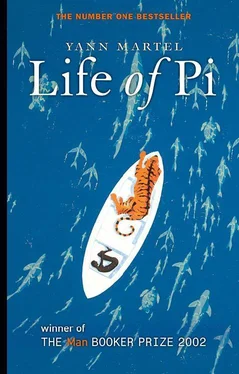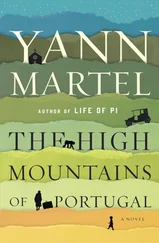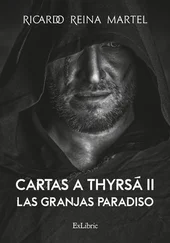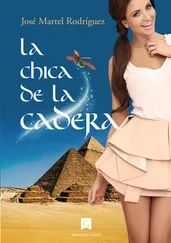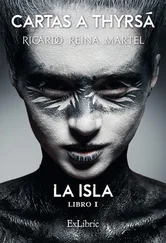Yann Martel - Life of Pi
Здесь есть возможность читать онлайн «Yann Martel - Life of Pi» весь текст электронной книги совершенно бесплатно (целиком полную версию без сокращений). В некоторых случаях можно слушать аудио, скачать через торрент в формате fb2 и присутствует краткое содержание. Год выпуска: 2002, ISBN: 2002, Издательство: Canongate Books, Жанр: Современная проза, на английском языке. Описание произведения, (предисловие) а так же отзывы посетителей доступны на портале библиотеки ЛибКат.
- Название:Life of Pi
- Автор:
- Издательство:Canongate Books
- Жанр:
- Год:2002
- ISBN:9781847674210
- Рейтинг книги:3 / 5. Голосов: 1
-
Избранное:Добавить в избранное
- Отзывы:
-
Ваша оценка:
- 60
- 1
- 2
- 3
- 4
- 5
Life of Pi: краткое содержание, описание и аннотация
Предлагаем к чтению аннотацию, описание, краткое содержание или предисловие (зависит от того, что написал сам автор книги «Life of Pi»). Если вы не нашли необходимую информацию о книге — напишите в комментариях, мы постараемся отыскать её.
Life of Pi — читать онлайн бесплатно полную книгу (весь текст) целиком
Ниже представлен текст книги, разбитый по страницам. Система сохранения места последней прочитанной страницы, позволяет с удобством читать онлайн бесплатно книгу «Life of Pi», без необходимости каждый раз заново искать на чём Вы остановились. Поставьте закладку, и сможете в любой момент перейти на страницу, на которой закончили чтение.
Интервал:
Закладка:
I described Mr. Kumar’s place as a hovel. Yet no mosque, church or temple ever felt so sacred to me. I sometimes came out of that bakery feeling heavy with glory. I would climb onto my bicycle and pedal that glory through the air.
One such time I left town and on my way back, at a point where the land was high and I could see the sea to my left and down the road a long ways, I suddenly felt I was in heaven. The spot was in fact no different from when I had passed it not long before, but my way of seeing it had changed. The feeling, a paradoxical mix of pulsing energy and profound peace, was intense and blissful. Whereas before the road, the sea, the trees, the air, the sun all spoke differently to me, now they spoke one language of unity. Tree took account of road, which was aware of air, which was mindful of sea, which shared things with sun. Every element lived in harmonious relation with its neighbour, and all was kith and kin. I knelt a mortal; I rose an immortal. I felt like the centre of a small circle coinciding with the centre of a much larger one. Atman met Allah.
One other time I felt God come so close to me. It was in Canada, much later. I was visiting friends in the country. It was winter. I was out alone on a walk on their large property and returning to the house. It was a clear, sunny day after a night of snowfall. All nature was blanketed in white. As I was coming up to the house, I turned my head. There was a wood and in that wood, a small clearing. A breeze, or perhaps it was an animal, had shaken a branch. Fine snow was falling through the air, glittering in the sunlight. In that falling golden dust in that sun-splashed clearing, I saw the Virgin Mary. Why her, I don’t know. My devotion to Mary was secondary. But it was her. Her skin was pale. She was wearing a white dress and a blue cloak; I remember being struck by their pleats and folds. When I say I saw her, I don’t quite mean it literally, though she did have body and colour. I felt I saw her, a vision beyond vision. I stopped and squinted. She looked beautiful and supremely regal. She was smiling at me with loving kindness. After some seconds she left me. My heart beat with fear and joy.
The presence of God is the finest of rewards.
CHAPTER 21
I am sitting in a downtown café, after, thinking. I have just spent most of an afternoon with him. Our encounters always leave me weary of the glum contentment that characterizes my life. What were those words he used that struck me? Ah, yes: “dry, yeastless factuality”, “the better story”. I take pen and paper out and write:
Words of divine consciousness: moral exaltation; lasting feelings of elevation, elation, joy; a quickening of the moral sense, which strikes one as more important than an intellectual understanding of things; an alignment of the universe along moral lines, not intellectual ones; a realization that the founding principle of existence is what we call love, which works itself out sometimes not clearly, not cleanly, not immediately, nonetheless ineluctably .
I pause. What of God’s silence? I think it over. I add:
An intellect confounded yet a trusting sense of presence and of ultimate purpose .
CHAPTER 22
I can well imagine an atheist’s last words: “White, white! L-L-Love! My God!”—and the deathbed leap of faith. Whereas the agnostic, if he stays true to his reasonable self, if he stays beholden to dry, yeastless factuality, might try to explain the warm light bathing him by saying, “Possibly a f-f-failing oxygenation of the b-b-brain,” and, to the very end, lack imagination and miss the better story.
CHAPTER 23
Alas, the sense of community that a common faith brings to a people spelled trouble for me. In time, my religious doings went from the notice of those to whom it didn’t matter and only amused, to that of those to whom it did matter—and they were not amused.
“What is your son doing going to temple?” asked the priest.
“Your son was seen in church crossing himself,” said the imam.
“Your son has gone Muslim,” said the pandit.
Yes, it was all forcefully brought to the attention of my bemused parents. You see, they didn’t know. They didn’t know that I was a practising Hindu, Christian and Muslim. Teenagers always hide a few things from their parents, isn’t that so? All sixteen-year-olds have secrets, don’t they? But fate decided that my parents and I and the three wise men, as I shall call them, should meet one day on the Goubert Salai seaside esplanade and that my secret should be outed. It was a lovely, breezy, hot Sunday afternoon and the Bay of Bengal glittered under a blue sky. Townspeople were out for a stroll. Children screamed and laughed. Coloured balloons floated in the air. Ice cream sales were brisk. Why think of business on such a day, I ask? Why couldn’t they have just walked by with a nod and a smile? It was not to be. We were to meet not just one wise man but all three, and not one after another but at the same time, and each would decide upon seeing us that right then was the golden occasion to meet that Pondicherry notable, the zoo director, he of the model devout son. When I saw the first, I smiled; by the time I had laid eyes on the third, my smile had frozen into a mask of horror. When it was clear that all three were converging on us, my heart jumped before sinking very low.
The wise men seemed annoyed when they realized that all three of them were approaching the same people. Each must have assumed that the others were there for some business other than pastoral and had rudely chosen that moment to deal with it. Glances of displeasure were exchanged.
My parents looked puzzled to have their way gently blocked by three broadly smiling religious strangers. I should explain that my family was anything but orthodox. Father saw himself as part of the New India—rich, modern and as secular as ice cream. He didn’t have a religious bone in his body. He was a businessman, pronounced busy nessman in his case, a hardworking, earthbound professional, more concerned with inbreeding among the lions than any overarching moral or existential scheme. It’s true that he had all new animals blessed by a priest and there were two small shrines at the zoo, one to Lord Ganesha and one to Hanuman, gods likely to please a zoo director, what with the first having the head of an elephant and the second being a monkey, but Father’s calculation was that this was good for business, not good for his soul, a matter of public relations rather than personal salvation. Spiritual worry was alien to him; it was financial worry that rocked his being. “One epidemic in the collection,” he used to say, “and we’ll end up in a road crew breaking up stones.” Mother was mum, bored and neutral on the subject. A Hindu upbringing and a Baptist education had precisely cancelled each other out as far as religion was concerned and had left her serenely impious. I suspect she suspected that I had a different take on the matter, but she never said anything when as a child I devoured the comic books of the Ramayana and the Mahabharata and an illustrated children’s Bible and other stories of the gods. She herself was a big reader. She was pleased to see me with my nose buried in a book, any book, so long as it wasn’t naughty. As for Ravi, if Lord Krishna had held a cricket bat rather than a flute, if Christ had appeared more plainly to him as an umpire, if the prophet Muhammad, peace be upon him, had shown some notions of bowling, he might have lifted a religious eyelid, but they didn’t, and so he slumbered.
After the “Hellos” and the “Good days”, there was an awkward silence. The priest broke it when he said, with pride in his voice, “Piscine is a good Christian boy. I hope to see him join our choir soon.”
Читать дальшеИнтервал:
Закладка:
Похожие книги на «Life of Pi»
Представляем Вашему вниманию похожие книги на «Life of Pi» списком для выбора. Мы отобрали схожую по названию и смыслу литературу в надежде предоставить читателям больше вариантов отыскать новые, интересные, ещё непрочитанные произведения.
Обсуждение, отзывы о книге «Life of Pi» и просто собственные мнения читателей. Оставьте ваши комментарии, напишите, что Вы думаете о произведении, его смысле или главных героях. Укажите что конкретно понравилось, а что нет, и почему Вы так считаете.
